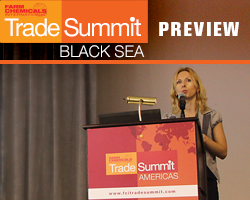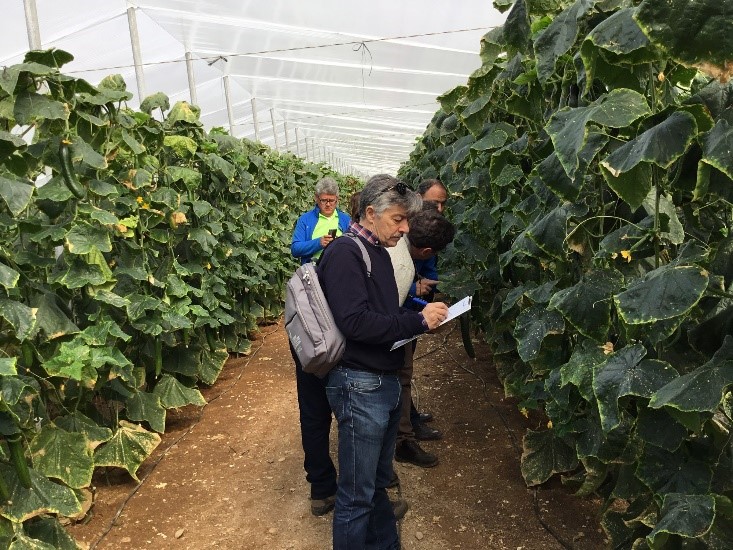Kazakhstan: State Support Is Key Factor
Editor’s Note: This is part of an ongoing series of articles focusing on the Black Sea Region, site of the next FCI Trade Summit, 12-13 December, 2013. For more information about the event and to register, click here.
With 36 million hectares of arable land, Kazakhstan is the largest landlocked country in the world and is the second-largest producer of wheat per capita, second only to Canada. But tough growing conditions and agricultural practices place the Central Asian country far behind its first-world-counterparts — its yields rank 142nd in the world.
This yield gap reveals not only weaknesses but tremendous opportunity for crop input providers. The government is encouraging broader use of pesticides and fertilizers through subsidies, and adoption is increasing.
In past years, Kazakhstan had a lackluster subsidy system, wherein the agricultural producer was limited in his choice of distributors and confined to a limited list of subsidized herbicides. Until 2012, only domestic input producers qualified for subsidies, prompting an outpouring of complaints at the local level.
Then, in 2012, Kazakhstan’s Ministry of Agriculture worked out a new law to amend the existing mechanism of subsidies on herbicides and mineral fertilizers. This new law includes more suppliers and foreign companies. However, the subsidies are unequal for domestic and foreign produced inputs. For example, with the purchase of one tonne (or liter or kilo) of Kazakh-produced herbicides, agricultural producers receive up to 50% in subsidies. For imported herbicides, subsidies of up to 30% are paid.
Under this program, the government is set to pay out more than $41.2 million in subsidies this year. But imported herbicides for vegetables, fruits and crops other than grains and oilseeds are still not subsidized.
Kazakh farmers are advocating for subsidized imported herbicides along with their domestically produced counterparts. Greater choice and competition between Kazakh producers of chemical plant protecting agents and the suppliers of imported herbicides can help farmers realize better prices.
Legislative Innovations of 2013
The Kazakh government has also increased investment in seeds and mineral fertilizers. Herbicide production has become cheaper. In particular, the 2013 budget allocated an additional $50.6 billion to reduce the cost of herbicides. And, since the beginning of 2013, the government started subsidizing foreign-produced herbicides for the first time.
The deficit of seeds in the regions affected by the 2012 drought was also addressed, with the Kazakh government granting 9.4 thousand tonnes of seed for a planting campaign. To date, the Ministry of Finance is considering allocating $2.96 million from the government reserve to increase subsidies for elite seeds of grain crops.
The government also approved a sectoral program for development of the agro-industrial complex of the Republic of Kazakhstan for the 2013-2020 period – dubbed “Agribusiness 2020” – which provides more state support and the allocation of significant budget funds, more than 3.5 times the current sums. Such measures will ensure that domestic producers receive the needed government support in the competitive struggle within Kazakhstan’s upcoming entry to the World Trade Organization.
The country is expected to soon join the WTO after a 17-year accession process. While according to the WTO it is unlikely to happen in 2013 due to questions about Kazakhstan’s foreign trade regime and market access, incremental progress is being made.
Top Producers of Crop Protection Products in Kazakhstan
■ Syngenta
■ CJSC ‘August’
■ Zavod Avtotekhnologiy
■ KIT
■ Various Chinese producers
Source: AgriSurvey farmers poll 2011-2012
Smaller than these but still one of the largest Kazakh suppliers of crop protection products in the country is LLP Agrochemicals, which was founded in 1999. The company’s goal is the production of a wide range of pesticides that are efficient and affordable for the Kazakh agricultural producers. The company has a production facility, equipped with the most modern equipment for manufacturing and formulating crop protection and other chemical products. The complex also includes a chemical laboratory with modern technical equipment for rapid testing and storage premises.






